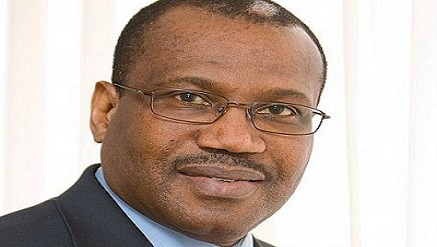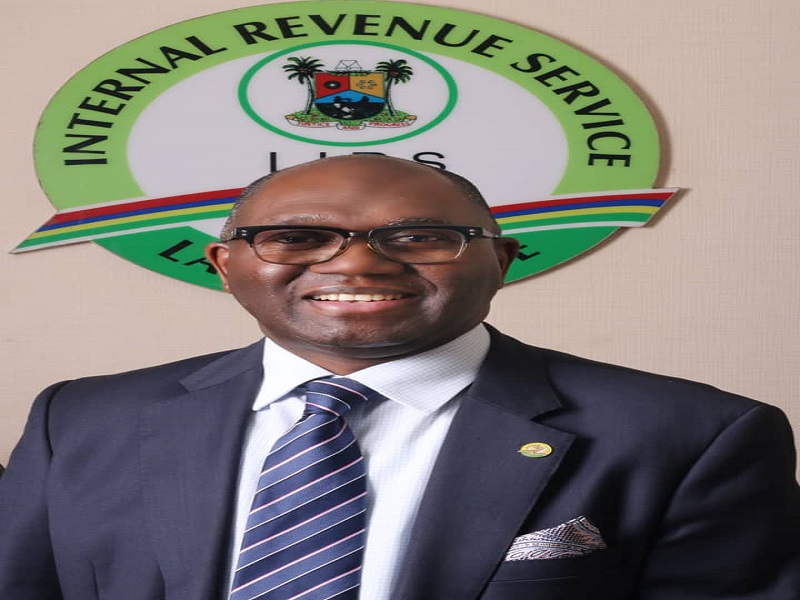News
Digital Inclusion of Persons with Disabilities Lagging Behind-ITU

The Model ICT Accessibility Policy Report released in São Paulo, Brazil recognizes that despite the unprecedented growth in mobile and Internet use worldwide, very few nations have acted to ensure that persons with disabilities are part of the technology revolution.
The Report is jointly published by the International Telecommunication Union (ITU) and the Global Initiative for Inclusive Information and Communication Technologies (G3ict).
The report notes that although many countries have information and communication technology (ICT) laws, policies and regulations that generally support the principles of universal access to ICT, the needs of the disability community are different and require a deliberate additional focus on ICT accessibility by legislators, policy-makers and regulators aimed at removing barriers to ICT use.
The policy framework was launched today at the Accessible Americas meeting organized by ITU, UNESCO, Brazil and the National Secretariat for the Promotion of the Rights of People with Disabilities of the Human Rights Secretariat of the Presidential Cabinet of the Brazilian Republic (SDH) in São Paolo, Brazil.
Bearing in mind the barriers faced by persons with disabilities in using many mainstream ICTs, the report is designed to guide national policy-makers and regulators in creating their own ICT accessibility policy frameworks in consultation with persons with disabilities.
It focuses on different aspects of ICT accessibility, namely amendments to the existing ICT legal framework, public ICT access, mobile communications, television/video programming, government websites and public procurement of accessible ICTs.
“ITU is working with all stakeholders towards global ICT accessibility and affordability in all countries and regions and by all peoples, including persons with disabilities,” says ITU Secretary-General Hamadoun I. Touré. “There is no doubt that ICTs can enable and accelerate access to resources such as education and health care for persons with disabilities leading to their greater social, economic and political inclusion.”
“The report contains concrete steps that can be taken to make meaningful rules and regulations to ensure that ICT accessibility becomes a reality on the ground,” said Mr Brahima Sanou, director of the ITU Telecommunication Development Bureau. “It helps regulators and policy makers to become action-oriented.”
“ITU’s leadership in promoting ICT accessibility plays an important role in realizing the promises of the Convention on the Rights of Persons with Disabilities”, said Axel Leblois, president and executive director of G3ict.
“The report, which is the result of seven years of cooperation between ITU and G3ict, offers easy to use policy frameworks inspired by existing good practices and available technologies from around the world. It also emphasizes the critical importance of involving relevant stakeholders in developing and monitoring ICT accessibility policies with the active participation of persons with disabilities.”
Mr Leblois added: “It is our hope that the model policies presented in the report will help accelerate the accessibility of essential ICT products and services for citizens of all abilities.”
The Model ICT accessibility policy report is developed for ICT policy-makers, regulators and other stakeholders active in ICT and/or disability issues, including non-governmental organizations (NGOs), organizations of persons with disabilities, and parliamentarians.
The report has been prepared pursuant to the United Nations Convention on the Rights of Persons with Disabilities and in line with the ITU and G3ict ICT Accessibility Policy Toolkit for persons with disabilities.
At the last World Telecommunication Development Conference (WTDC 2014) held in April this year, ITU Members reaffirmed, by adopting Resolution 58, the need for accessible ICTs for persons with disabilities through the development of national legal frameworks, laws, regulations and policies.
Likewise, the ITU Plenipotentiary Conference held in Busan, Republic of Korea, October-November 2014, established the Connect 2020 Agenda which includes four high-level goals: growth, inclusiveness, sustainability and innovation, and partnership. The goals are accompanied by a set of targets, among which “Enabling environments ensuring accessible telecommunications/ICTs for persons with disabilities should be established in all countries by 2020”.
Digital Inclusion is part of the ITU Telecommunication Development Sector’s activities designed to promote ICT accessibility and use for the social and economic development of people with specific needs, including indigenous peoples and people living in rural areas; persons with disabilities; women and girls; and youth and children.
News
Firms Commit to Boost African Robotics Market

AfricAI and Micropolis Robotics have signed a multi-year exclusive distribution and deployment agreement, which marks one of the continent’s most significant robotics market entries.

Micropolis AI Robotics is a United Arab Emirates-based robotics manufacturer operating in autonomous systems, while AfricAI is a company building practical, revenue-driven artificial intelligence (AI) systems for African businesses, governments, and global partners operating in emerging markets.
According to the agreement, Micropolis Robotics named AfricAI as its exclusive continental partner, prohibiting direct sales, alternative distributors, and third-party agents from operating in the territory.
The partnership establishes AfricAI as the primary execution, localisation, and go-to-market platform for intelligent robotics in Africa’s industrial, security, logistics, and infrastructure sectors.
AfricAI said this exclusive mandate positions the company as the gateway for advanced autonomous systems entering African markets, ensuring regulatory compliance, local capacity building, and sovereign control over deployment frameworks.
The partnership, according to the two parties, moves beyond software- based AI into the realm of physical AI — intelligent machines capable of operating in complex, real-world African environments.
“This is not a collaboration, it is a market-shaping mandate,” said Fareed Aljawhari, CEO of Micropolis Robotics. “AfricAI now represents the exclusive gateway through which Micropolis technologies enter Africa. Their sovereign AI vision, operational reach, and regulatory fluency make them the only partner capable of executing at a continental scale.
Furthermore, the agreement enables AfricAI to integrate Micropolis’ autonomous robotics systems with AfricAI’s sovereign AI stack, resulting in AI-powered security and surveillance platforms, robotics-enabled logistics and port operations, industrial automation, smart infrastructure, and municipal robotics tailored to African operating conditions.
Initial deployments will commence in security, smart infrastructure, and logistics, with phased expansion across multiple African states as part of AfricAI’s broader continental AI, data, and intelligent infrastructure strategy.
The agreement also includes long-term performance-linked expansion rights, automatic renewals, and a defined localisation framework to support robotics deployment, workforce training, and skills transfer across Africa.
Prince Malik Ado-Ibrahim, executive chairman of AfricAI, said: “Africa does not need imported automation — it needs sovereign, context-aware intelligent systems. This exclusive mandate allows AfricAI to industrialise robotics deployment at scale while retaining control, compliance, and value creation on the continent.”
News
Subair: LIRS Won’t Raid Accounts – Unless You’ve Lost Every Court Battle

Lagos State Internal Revenue Service Executive Chairman Ayodele Subair Tuesday demolished online panic over alleged bank account raids, insisting the agency’s “Power of Substitution” targets only hardcore tax dodgers who have exhausted every appeal from tribunals to the Supreme Court over half a decade of disputes.

Ayodele Subair
Subair, speaking on Arise TV, shredded viral fears that LIRS would swoop on residents’ savings without warning, clarifying the mechanism under Section 60 of the Nigeria Tax Administration Act 2025 kicks in solely after assessments spark objections, reconciliations, demand notices, and a gruelling courtroom odyssey through High Court, Court of Appeal, and apex rulings.
The LIRS weekend notice had ignited fury by announcing enforcement via third parties – banks, employers, tenants, debtors – to claw back unpaid Personal Income Tax, Capital Gains Tax, Stamp Duties, and Withholding Tax from chronic defaulters holding funds or owing money to them, whether due now or accruing later.
Subair likened the process to a “long timeframe, not less than five years,” where recalcitrant bigwigs who stonewall every step become fair game, with LIRS directing agents like customers or partners to divert payments straight to the taxman in lawful settlement.
Far from arbitrary grabs, the chairman stressed it’s a final resort for “entirely recalcitrant” holdouts who ignore Notice of Refusal to Amend (NORA) and every olive branch, ensuring Lagos coffers snag rightful revenue fuelling the state’s bulging budget without shotgun raids on compliant payers.
As social media buzzes with defiance – “They can’t touch my account!” – Subair’s blueprint spotlights Nigeria’s tax evasion scourge starving subnationals of trillions yearly, with Lagos alone chasing billions in arrears amid federal revenue wars and economic headwinds squeezing the commercial capital’s 25 million souls.
Industry voices nod to the legality but plead for digital dashboards tracking disputes transparently, warning overzealous recovery could spook investors in Africa’s fintech and startup mecca already reeling from naira nosedives and grid glitches.
With LIRS poised to unleash the hammer on vetted violators, Subair’s clarion call aims to separate myth from muscle, bolstering Lagos’ IGR juggernaut that hit N815 billion last year while daring defaulters to test the full judicial gauntlet before crying foul.
News
NIGCOMSAT Adopts Government’s Performance System

Nigerian Communications Satellite (NIGCOMSAT) Ltd, in a strategic move to modernise its operations and foster a results-oriented workforce, has officially adopted the Federal Government’s Performance Management System (PMS).

The initiative, aimed at driving efficiency and institutionalising accountability, was marked by an intensive staff training program designed to align the agency’s operations with national performance goals and the Presidency’s vision for a digital-first public sector.
According to a statement from Stephen Kwande, the Agency’s acting head of Corporate Affairs, “the transition to PMS is a departure from historical evaluation methods. The new system is designed to provide real-time performance tracking and instill a stronger work ethic across all directorates”.
Welcoming participants, Mrs. Jane Nkechi Egerton-Idehen, managing director/CEO of NIGCOMSAT, represented by Abiodun Attah, executive diirector, Technical Services, described the adoption as “long overdue.”
She emphasised that the system is critical for ensuring that NIGCOMSAT contributes effectively to Nigeria’s broader digital economy targets.
In her opening remarks, Mrs. Chinwe Udogu, general manager, Human Resources Management, expressed NIGCOMSAT’s enthusiasm for the program, urging staff to dedicate themselves fully to the three-day training.
She noted that the exercise was pivotal in repositioning the company to achieve its highest aspirations.
The training consultant, Mrs. Njoku Chioma, said the program is expected to drive culture change, automate work processes, and strengthen institutional performance.
The three-day training, jointly organised by the Office of the Head of Service of the Federation and NIGCOMSAT Management, covers key themes including:
• Overview of the FCSSI25 as an institutional performance-driven Federal Civil/Public Service
• Service culture and workplace attitude in the Nigerian public sector
• Implementation of the Performance Management System in NIGCOMSAT
• Application of Artificial Intelligence tools to enhance performance in the Nigerian public sector
The move comes at a time when NIGCOMSAT is expanding its footprint, with recent initiatives like the 2026 SpaceTech Accelerator Programme and partnerships for grassroots digital skills training.
By strengthening its internal management framework, the agency aims to ensure that its technical advancements in satellite technology are matched by an equally efficient administrative engine.

 E-Financial3 days ago
E-Financial3 days agoCBN Upgrades Licences of Opay, Moniepoint, Kuda, Palmpay, Paga to National Status
- E-Financial3 days ago
Nigeria’s 9 Top FinTech Firms Valued at $10.6Bn in January 2026

 News3 days ago
News3 days agoTech Executives Double Down on AI, Talent and Adaptive Strategies to Lead in the Intelligence Age

 E-Financial3 days ago
E-Financial3 days agoNIBBS to Boost Financial Inclusion with Offline Payment Solutions

 News3 days ago
News3 days agoDHQ Indicts Brigadier General Abubakar Sadiq, 15 Others in Alleged Coup Plot againt Tinubu

 E-Business3 days ago
E-Business3 days agoFirm Identifies AI as Common Denominator in Entertainment Industry’s 2026 Security Threats

 E-Financial2 days ago
E-Financial2 days agoPayPal Goes Live in Nigeria through Paga

 News3 days ago
News3 days agoCourt Fines Airtel N210m for Unauthorised Use of ‘Nigeria Go Survive’ Song

























